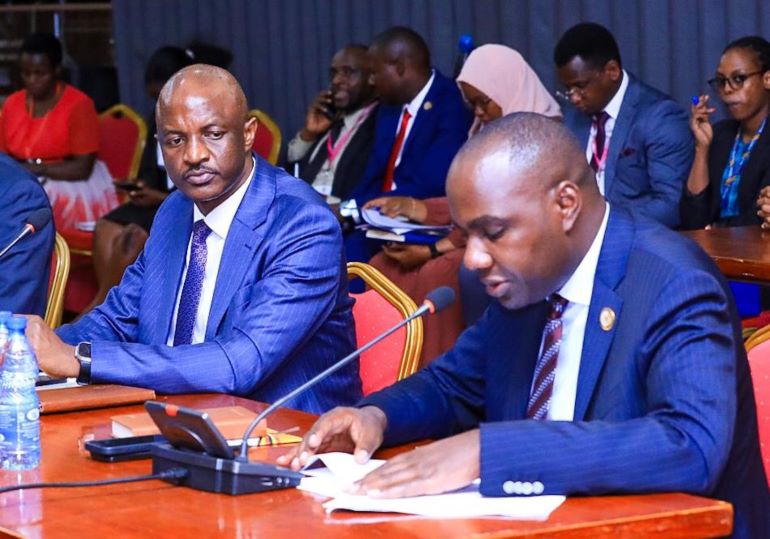KAMPALA, May 21, 2025 — Government is currently engaged in negotiations with the World Bank to secure renewed funding for the Ministry of Education and Sports, with the aim of refurbishing at least 160 traditional secondary schools across the country.
According to Ramathan Ggoobi, Permanent Secretary and Secretary to the Treasury [PSST] in the Finance Ministry, discussions with the World Bank are progressing well, with the Bank having agreed in principle to support the initiative. However, he noted that final details of the arrangement are still being ironed out.
“I would like to assure the public that we are taking significant steps in the education sector,” said Ggoobi during a recent appearance before the Members of Parliament [MPs] on the Budget Committee. “We are finalising negotiations with the World Bank for a major project under the U-Learn programme, through which many schools will be rehabilitated.”
Ggoobi explained that the U-Learn Programme, in conjunction with the ongoing Uganda Intergovernmental Fiscal Transfer Programme [UGIFT], also supported by the World Bank, will significantly address the infrastructure challenges facing the education sector.
The UGIFT initiative, valued at US$ 300 million, is designed to rehabilitate at least 1,000 existing primary schools, in addition to supporting infrastructural development in the health and environmental sectors.
However, several MPs expressed concern over the government’s continued neglect of certain budgetary needs, especially for schools facing dire conditions.
“There are schools still conducting lessons under trees,” said Samuel Okwir, MP for Moroto County in Alebtong district. “Akola Seed Secondary School, for example, was grant-aided in 2016, yet government has never allocated funds to pay teachers. What has government been doing all this time?”
Annet Katusiime, Woman MP for Bushenyi district, also appealed to the Ministry of Finance to consider funding schools in her constituency that were previously supported through government grants but have since been overlooked.
“These are schools that were officially taken over by government. Teachers were recruited and deployed, but for the past two years, they’ve received no funding whatsoever,” she said.
Nathan Itungo, MP for Kashari South County, urged the Ministry to reinstate funding for the Uganda National Institute for Teacher Education [UNITE], which is tasked with coordinating all levels of teacher education in the country.
“Without operational funding for UNITE, Primary Teachers’ Colleges and National Teachers’ Colleges will remain idle,” said Itungo. “Free education is a key message of the President, but without trained teachers, how can we deliver it?”
There has been mounting public concern over the deteriorating state of many traditional secondary schools, both in infrastructure and academic performance. These challenges have been linked to inadequate government planning, the implementation of free secondary education, and the banning of Parents Teachers Associations [PTAs], among other policy issues.
https://thecooperator.news/unicef-eu-launch-programme-to-support-girls-in-secondary-schools/
Buy your copy of thecooperator magazine from one of our country-wide vending points or an e-copy on emag.thecooperator.news
